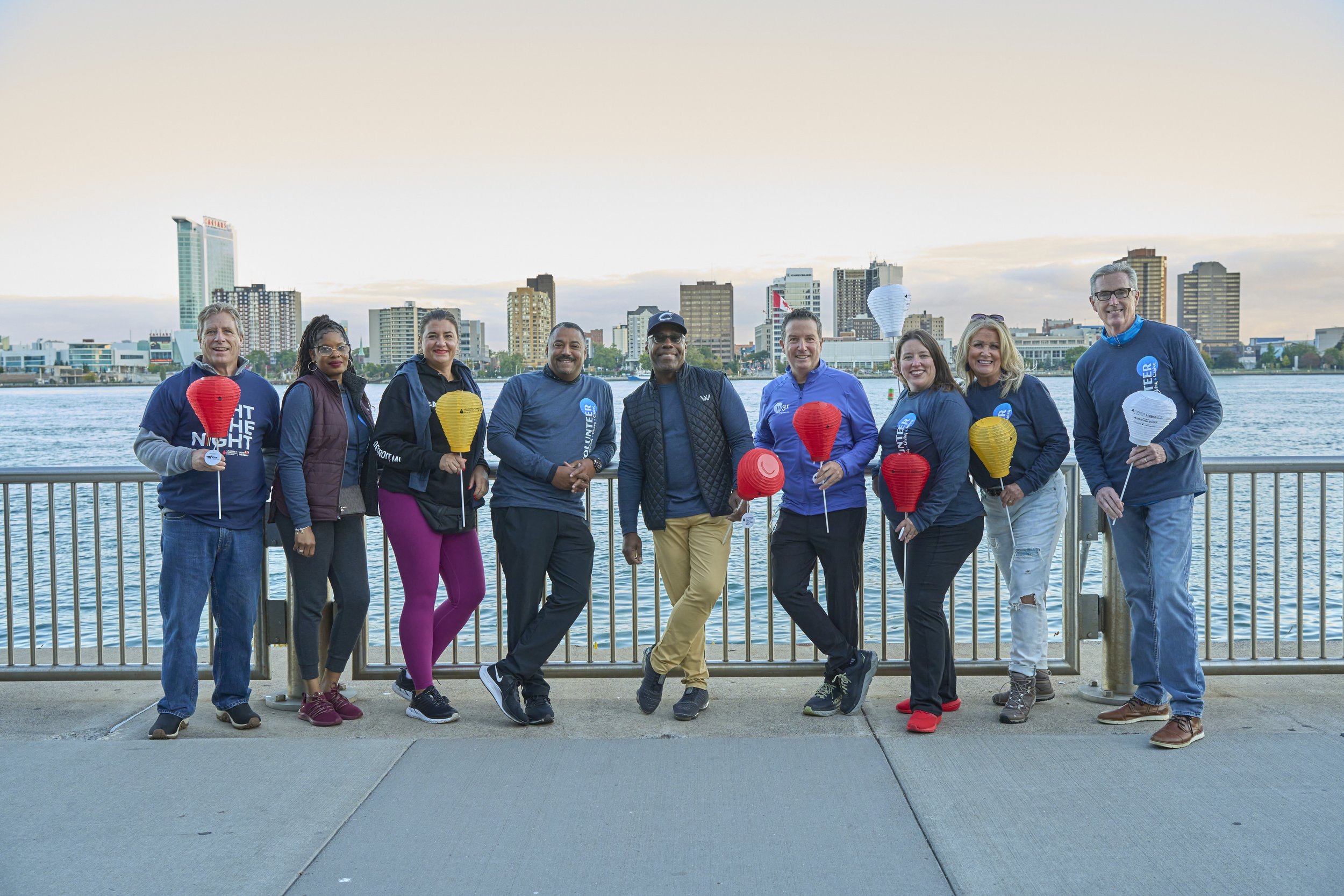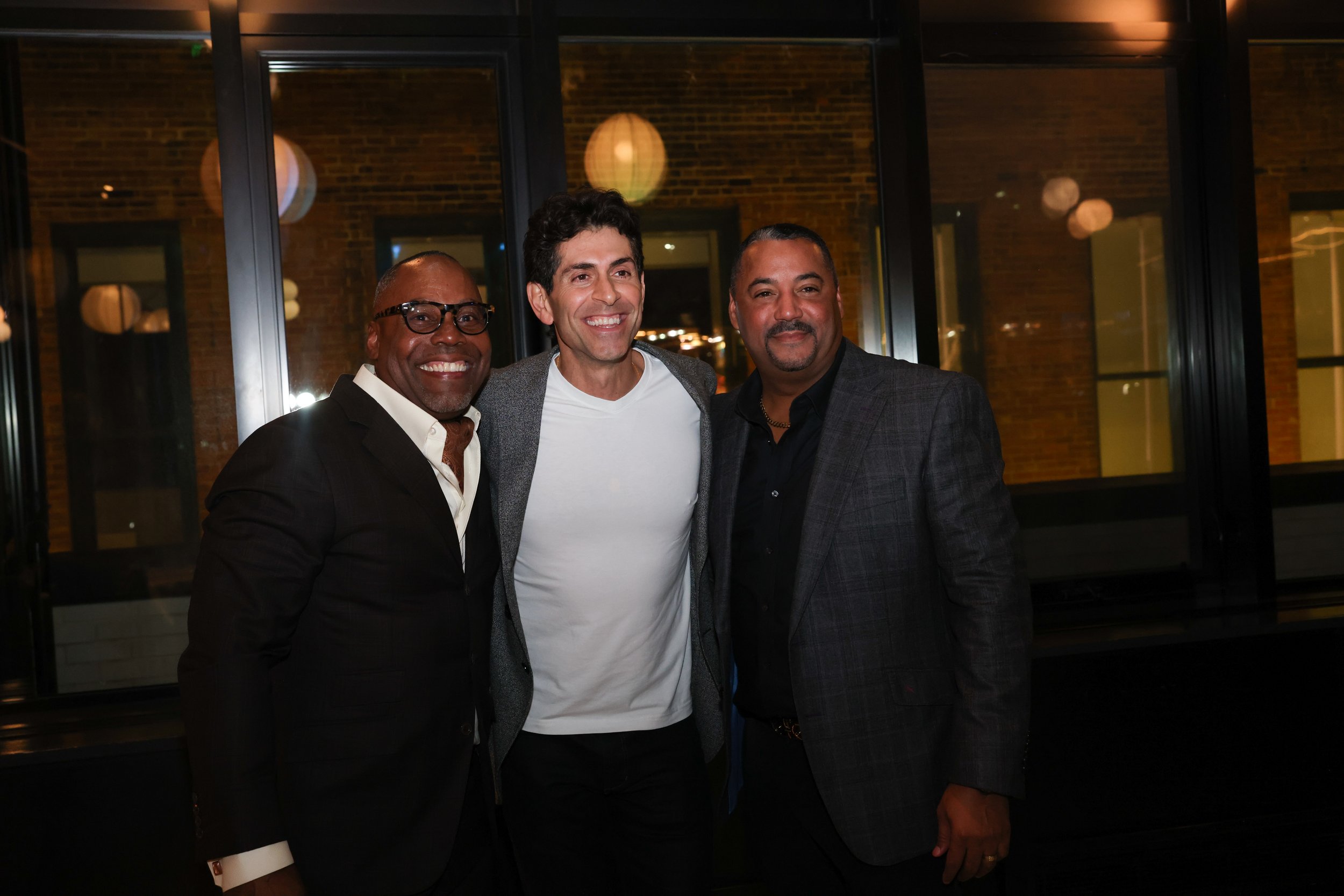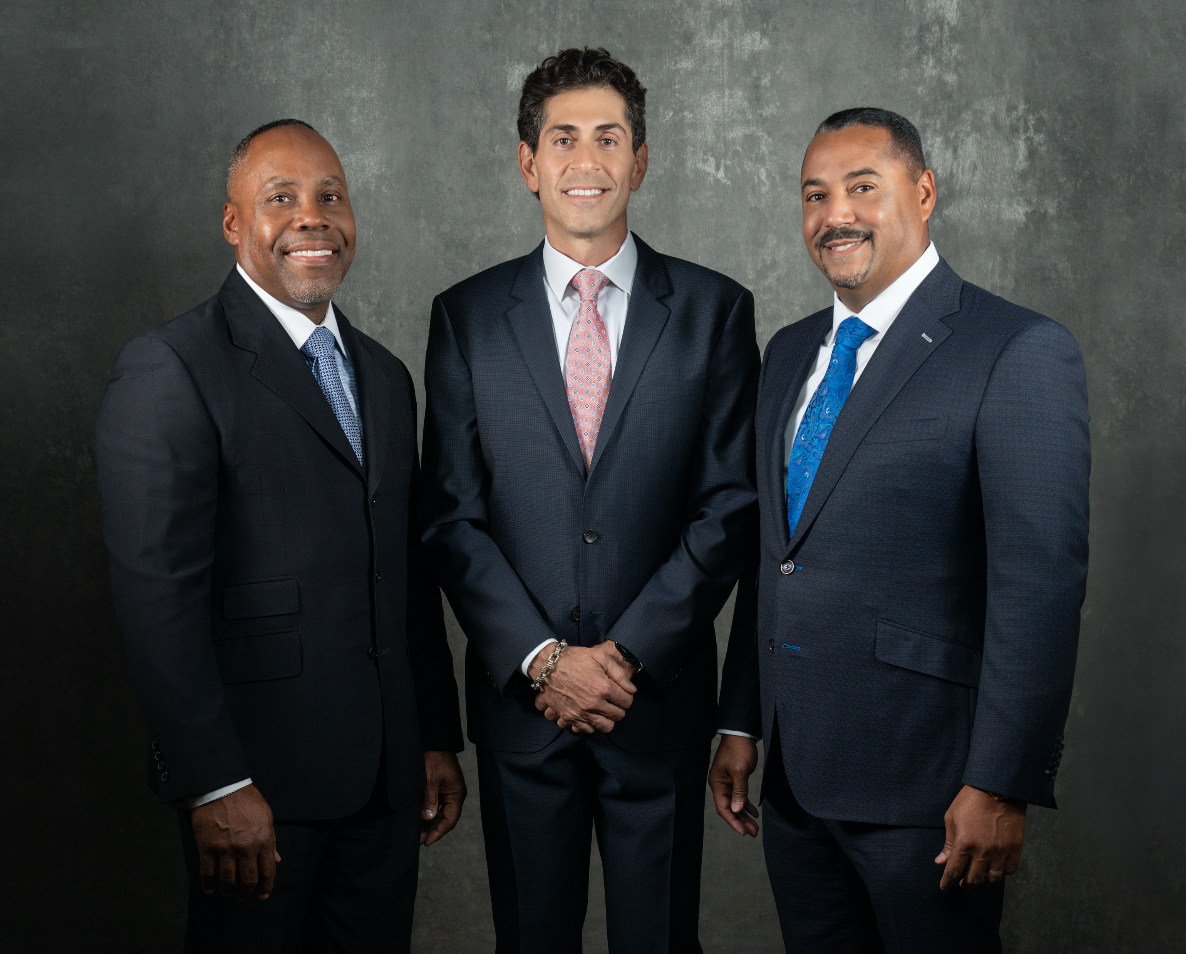Ingredients for Success
W3r team played fowling and threw axes at a recent outing at the Hub, in Novi.
Three friends, two cultures and one great company
By Paul Natinsky
Almost three decades ago, three friends joined forces for a professional journey none of them could have predicted.
Patrick Tomina and Eric Hardy met at University of Michigan-Dearborn. They came together from very different backgrounds—Tomina is Chaldean and has roots in independent retail businesses; Hardy is African American and from a family in which his father worked for General Motors and expected his son to follow a similar path.
Pat and Eric were initially bound by their common interest in engineering, but their relationship deepened as they worked together to form a company based on their common interests and values that each brought to the equation.
“27 years ago, people didn’t really understand our business relationship because they’re looking at a Black guy and a Chaldean guy and they are thinking ‘Why are they so close? Why are they doing business together?’ I don’t think that happened that much back then,” said Tomina.
Hardy summed it up in a sentence. “Like-minded people, regardless of culture, can come together.”
The first venture for Tomina and Hardy was to form a company that designed websites. Intended to be fun, the venture was a hobby cooked up in the U of M Dearborn computer lab.
And then there were three
Eventually, Hardy left engineering for IT consulting. It was at this career stop that he met Keith Echols. Echols was working at Detroit Edison at the time and was Hardy’s second client. The two found themselves working deep into the night on a project in the state’s Thumb Region. On the long drive home, the conversation deepened, and they began to think there might be something there, said Echols.
Hardy said Echols, who is a few years older than Hardy and Tomina, was the first Black executive with whom Hardy had worked. “He was a demonstration of what was possible for folks who looked like us.”
The idea of working together jelled when the three came together on another project. They decided to establish a company based on the idea that strong personal relationships and contributions from different cultures could blend with strong professional skills. The three principals planned to harness this business philosophy and use it to drive solutions for their clients. Thus, was born w3r, with Hardy as CEO, Tomina as CFO, and Echols as Executive Vice President.
Technology at the core
Hardy says w3r “is a technology firm at our core.” The company focuses its effort mostly in three industries: healthcare, financial services, and insurance.
w3r operates mostly in technology spaces, handling challenges such as cloud transformations, data management and application development. Branching out into healthcare, the company now also owns a nursing and case management practice and operates a healthcare employment agency.
Diversity in w3r’s interests reflects the company’s corporate philosophy, which stems directly from its principals.
“It was the differences in our backgrounds that allowed us to be successful,” said Hardy. Tomina brought elements of the Chaldean community to w3r, Hardy and Echols brought Tomina into their circle, including the National Society of Black Engineers. The trio never led with the fact that their company was minority owned, though it was obvious as soon as they walked into a room, said Hardy.
The formula has worked well and allowed w3r to form trust bonds and long-term relationships with clients.
w3r did a recent pitch-and response with a financial services client, part of a 17-year relationship. The project at hand is to help the bank through its organizational move from Michigan to another state. In this process, the client will have to divest itself of key property assets. w3r will work to help them take the core operations and put them in the cloud.
“We’re the guys behind the scenes doing the architecture work as well as the development work with the companies to allow this modernization of the environment to happen,” said Hardy. The transition has to be seamless.
Conquering COVID
w3r’s corporate structure helped it meet challenges outside of its core business. The company used its strong internal relationships to weather the COVID storm well. Hardy credits the company’s roots in engineering training among the principals and a conservative management style.
Tomina credits the company’s closeness and strong communication with its employees for helping it retain employees and develop flexible COVID personnel policies.
“There were a lot of companies that during or after COVID, that had hard lines with their employees. Many of our employees are close friends of ours—we go out to dinners together; we see each other all the time outside of work. We allowed our folks to do what they wanted to do. So, if they wanted to work from home, we provided them with the tools to do that. We didn’t put any hard lines down that said ‘Hey, you’ve got to be in the office three days a week, or you’ve got to come back to the office full time.’”
Hardy said the company had one of its best years ever coming out of COVID as the demand for work-at-home technology spiked.
The home stretch
Hardy said the partners are driving revenue to $100M in annualized revenue over the next five years. At that point they likely will have serious conversations about succession plans that help make the organization younger. Just like the old days the trio talk and see one another frequently, so they are on the same page.
However it shakes out in the end, w3r’s journey has, thus far, been as much fun as a college joy ride—with the satisfaction reserved for grownups.





